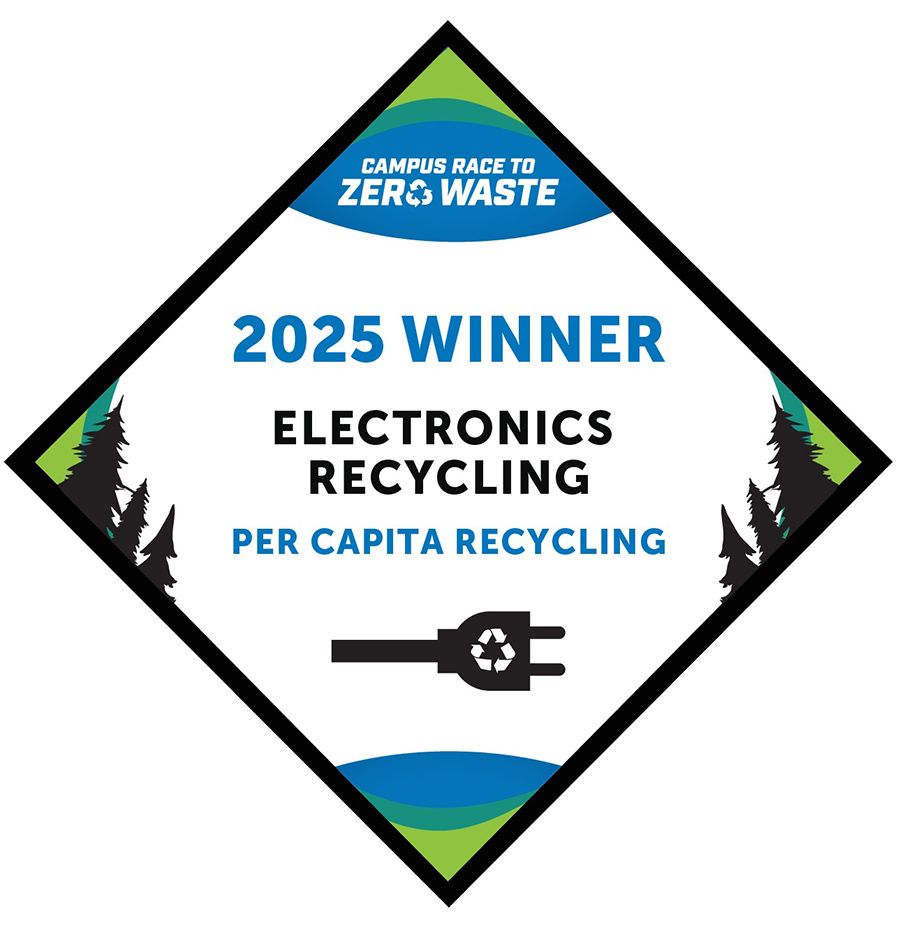For the second consecutive year, Northwest Missouri State University topped other colleges and universities throughout the nation when recycling electronic items.

Northwest annually competes in the Campus Race to Zero Waste.
The final results of the 2025 Campus Race to Zero Waste competition show Northwest placed first in the category of Electronics Recycling Per Capita by recycling 2.3 pounds per capita and submitting nearly 15,500 pounds, which amounts to nearly 8 tons. The items included batteries, lamps, televisions, monitors, laptops and other computer equipment.
Additionally, Northwest offices worked with the Office of Sustainability to reuse or recycle as many discarded electronics, including desk phones discarded during the University’s installation of a new phone system this year, fluorescent and incandescent bulbs replaced with LEDs, computers, and televisions, printers and computer peripherals that were not in working condition.
“Each year, we hope the Campus Race to Zero Waste reminds everyone on campus to reduce waste and recycle whenever possible,” Tim Hill, Northwest’s environmental sustainability coordinator, said. “Winning the Electronics Recycling Per Capita category is a testament to Northwest’s longstanding commitment to environmental stewardship.”
In other categories, Northwest ranked No. 22 in minimizing food waste, No. 48 in waste diversion and No. 68 in per capita recycling.
Formerly known as RecycleMania, Campus Race to Zero Waste is the nation’s premier waste reduction and recycling competition among colleges and universities. The eight-week competition each spring is managed by National Wildlife Federation and governed by RecycleMania Inc.
Campus Race to Zero Waste has been helping campuses minimize waste and improve their recycling efforts since its launch in 2001. Northwest began participating in the annual competition in 2005.
Participating colleges and universities report the amount of waste and recycling they collect each week. Participating institutions are then ranked in various categories based on the amount they recycle per capita as well as recycling rates. The competition categories include food organics, electronics recycling and the percentage of waste diverted from landfills.